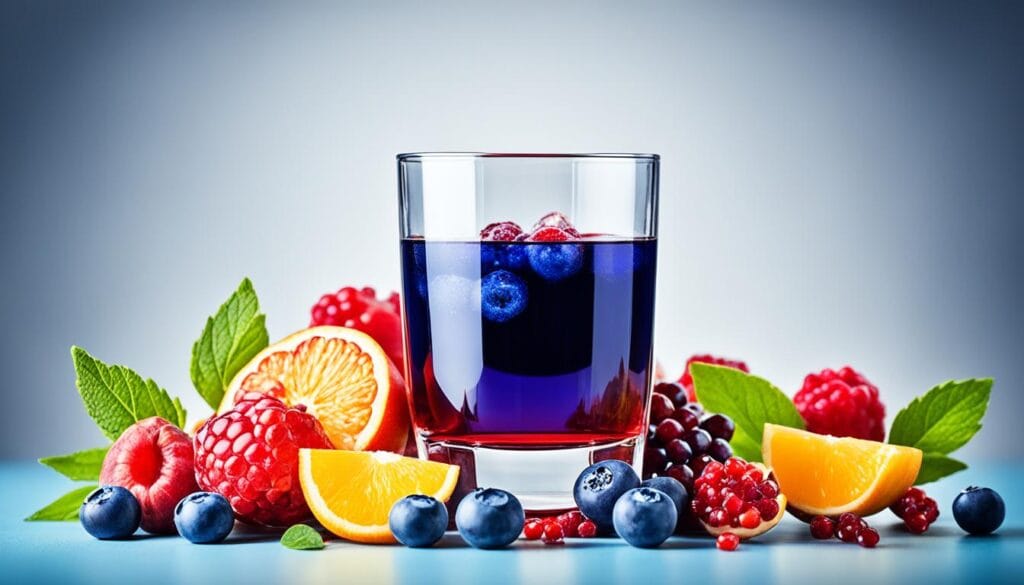Whiskey connoisseurs might enjoy the complexity of a neat Scotch, but many drinkers gravitate towards Scotch cocktails that often include mixers or ice. While these concoctions can be a delight to the palate, it is pivotal to understand the potential drawbacks of Scotch cocktails which may influence both health and flavor. The disadvantages of Scotch-based drinks are not trivial; consistent consumption can pose serious impacts on health, and excessive blending with other ingredients may mask the true essence of the whiskey, risking a less than optimal tasting experience. The allure of these libations sits alongside an array of Scotch cocktail risks, from the immediate repercussions of increased heart rates and nausea to the long-term threats of liver cirrhosis and addiction. Even among enthusiasts who appreciate the craft of whiskey, the advantages of a perfectly aged Scotch can be compromised by the convenience of a mixed drink.
Those who seek guidance on the prudent enjoyment of whiskey may find insightful recommendations on how to relish the spirit without drowning its flavors in ice or mixers. Enlightening resources such as Scotch Noob advocate for the occasional addition of water to enhance the whiskey’s profile. Alternatively, the ongoing conversation surrounding mixology trends, including the use of Scotch in various cocktails, is well-curated by Flavorful Drinks, offering subscriptions for updates on the latest in drink innovation and appreciation.
Key Takeaways
- Understanding the health-related downsides of regular and excessive Scotch cocktail consumption is critical.
- Considering the high congener content of Scotch, lighter options might offer a gentler aftermath for occasional drinkers.
- Exploring alternatives to traditional Scotch cocktails may lead to discovery of healthier, yet equally satisfying, drink options.
- Moderation is the linchpin when it comes to enjoying the benefits of Scotch without falling victim to its potential health hazards.
- Educating oneself about the calorie count and alcohol content in Scotch can assist in making more informed drinking choices.
- For those curious about more nuanced whiskey tasting experiences, resources like Scotch Noob provide valuable insights.
- Subscribing to platforms like Flavorful Drinks may elevate one’s mixology knowledge, mitigating the reliance on high-risk Scotch cocktails.
Navigating the Risks of Scotch Cocktails for Health-Conscious Drinkers
The allure of Scotch cocktails is undeniable, with their rich flavors and storied history. However, for the health-conscious drinker, it’s essential to understand the health risks of Scotch cocktails. From the potential for alcohol poisoning to the long-term impact on liver health, the consequences can be serious.
The Reality of Alcohol Poisoning and Addiction
Alcohol poisoning is a severe and potentially deadly result of drinking large quantities of alcohol in a short period. Due to its high alcohol content, Scotch can quickly lead to this dangerous condition. Furthermore, regular consumption of Scotch cocktails can lead to Scotch addiction, where the dependence on alcohol can disrupt daily life and health.
How Liver Cirrhosis Is Linked to Scotch Consumption
Chronic consumption of Scotch can cause liver damage from Scotch, specifically cirrhosis. This condition involves the replacement of healthy liver cells with scar tissue, severely impairing the liver’s ability to function properly. Since the liver plays a crucial role in filtering toxins, its compromised state can lead to significant health complications and even liver failure.
Impaired Judgment and Accidents: The Invisible Impact of Scotch
Impaired judgment due to alcohol is another significant risk associated with drinking Scotch cocktails. Alcohol can lower inhibitions and impair decision-making skills, leading to increased chances of accidents and reckless behavior. The risk is heightened when one consumes Scotch, given its potency and rapid effect on the brain.
While Scotch cocktails can be enjoyed responsibly, it is vital to be aware of these risks and manage consumption to avoid alcohol-related health issues. For those looking to minimize their risk, moderation and understanding one’s limits are key.
Understanding the US’s Affection for Scotch Despite Health Concerns
Scotch’s popularity in the US continues unabated, even in light of increasing awareness of the health concerns of regular Scotch drinking. This deep-seated affection points to a unique cultural placement that intersects with both tradition and contemporary consumption patterns.
Scotch’s Place in America’s Drinking Culture
Scotch consumption in America has woven itself into various aspects of social interactions and personal celebrations, reflecting its esteemed position in the beverage market. Despite health warnings, many Americans find the distinct, smoky flavors of Scotch particularly appealing, often viewing it as a sophisticated drink of choice during corporate events and intimate gatherings.
Consequences of Regular Scotch Consumption on Physical Health
While enjoying Scotch in moderation can be part of a balanced lifestyle, excessive consumption poses significant health risks. Studies have linked regular high consumption of alcohol with an increased risk of liver diseases, certain types of cancer, and other serious health problems, marking vital considerations that often contrast with its cultural popularity.
| Health Impact | Consequences |
|---|---|
| Liver Disease | Scotch’s ethanol content can lead to fatty liver, hepatitis, and cirrhosis, especially with prolonged heavy drinking. |
| Cancer Risk | Regular Scotch drinking is associated with an increased risk of cancers such as liver, esophageal, and breast cancer, as highlighted by several health studies. |
| Heart Disease | While moderate drinking can potentially reduce the risk of heart disease, excessive Scotch consumption reverses this benefit, leading to higher risks of heart failure and other cardiovascular problems. |
The enduring appeal of Scotch in the US, despite these health concerns, underscores a complex relationship between cultural practices and growing health awareness. It acknowledges that while Scotch can be enjoyed responsibly, public health messages and personal accountability are crucial in mitigating health risks associated with its consumption.
Disadvantages of Scotch Cocktails in Everyday Life
While occasional Scotch consumption may be enjoyed socially, everyday risks of Scotch cocktails significantly outweigh these brief highs. Daily Scotch intake, linked with various health setbacks, underscores multiple disadvantages grounded in scientific research.
The disadvantages of daily Scotch intake are not only related to health but also encompass social and economic aspects. Here we explore how routinely introducing Scotch to your lifestyle can impact multiple facets of living.
Downsides of Scotch in daily life can manifest in both acute and long-term medical conditions. For instance, liver disease such as cirrhosis, which is irreversible, has been directly linked to chronic alcohol use. Furthermore, the daily intake of Scotch increases the risk of developing certain types of cancer, including esophageal, liver, and breast cancer.
| Health Factor | Impact of Moderate Use | Impact of Heavy Use |
|---|---|---|
| Inflammation and Obesity | Possibly Reduced | Increased risk |
| Heart Health | May decrease risk | Elevates risk significantly |
| Liver Health | Minimal impact | Steatosis, Hepatitis, Cirrhosis |
| Cancer Risk | Slight reduction possible | Significantly higher (mouth, throat, liver, breast) |
| Mental Health | May enhance mood temporarily | Depression, increased dementia risk |
Moreover, apart from medical downsides, regular Scotch consumption can lead to dependency, significantly disrupting personal and professional lives. This addictive potential not only affects the individual’s health but also strains relationships and work productivity.
Financially, the cost of frequent Scotch consumption can be substantial. What starts as a casual drink can quickly turn into a costly habit, diverting funds that could otherwise be used for healthier lifestyle options or savings.
In conclusion, while moderate Scotch consumption can sometimes be seen as part of a tradition or social engagement, the disadvantages of daily Scotch intake present compelling reasons for moderation. These reasons span health risks, financial costs, and broader lifestyle disruptions.
The Historical Perspective: Debunking Scotch as a Medicinal Solution
Scotch whisky, often heralded as an elixir of life in historical texts, has seen its fair share of myths and misconceptions, particularly concerning its medicinal uses. Despite its storied past, modern analysis and scientific scrutiny question the effectiveness of Scotch for medicinal applications, highlighting significant disadvantages of Scotch for medicinal use.
Scotch’s Ancient Roots as a Purported Remedy
From its early days, Scotch was intertwined with medical practices, prescribed for everything from soothing aches to purportedly curing more permanent ailments. This tradition dates back to when distilled spirits were a staple in apothecaries, utilized both internally and externally. Historical accounts suggest that it was mixed with herbs and even applied as an ointment, a stark contrast to its contemporary recreational consumption.
Modern Understanding versus Historical Uses of Scotch
The historical uses of Scotch as a cure-all are now overshadowed by a more nuanced understanding of its effects on the human body. Alcohol, including Scotch, is recognized to exacerbate conditions such as inflammation and weaken immune response, disputing its once celebrated status as a panacea.
| Period | Common Use | Perceived Medicinal Benefit |
|---|---|---|
| Colonial America | Daily consumption | Prevention of sickness |
| 18th Century Scotland | In ointments and soaks | Treatment of physical ailments |
| Modern Perspective | Recreational | None medically endorsed |
In essence, while Scotch indeed held a place in ancient remedy books, the myths of medicinal Scotch have largely been dispelled by contemporary health sciences. This shift underscores the importance of distinguishing between historical anecdotes and medically verified facts.
Scotch and Digestion: Unpacking the Myths and Realities
Scotch, a revered spirit often enjoyed as a digestif, is believed to aid in digestion, but how does it truly impact digestive health? Delving into the interactions between Scotch and digestive health reveals a complex relationship that influences gastric functions and potentially contributes to conditions like gastritis from alcohol.
Is Scotch a Friend or Foe to Your Stomach?
Traditionally, Scotch has been considered a digestif, thought to aid in the digestion process after a meal. However, while the soothing warmth of Scotch might feel comforting, its impact on stomach acid can be quite the opposite. Scotch’s effect on the stomach lines the walls with increased acidity, which, contrary to aiding digestion, might actually exacerbate digestive issues. Understanding Scotch’s impact on stomach acid is crucial for those who regularly consume it as an after-dinner liqueur. It’s important for individuals, especially those with sensitive digestive systems, to be aware of these potential risks.
The Cycle of Gastritis and Alcohol: A Cautionary Tale
The relationship between alcohol, including Scotch, and gastritis is well-documented but often overlooked in casual consumption. Regular intake of Scotch can lead to the development of chronic gastritis, a condition characterized by the inflammation of the stomach lining. This inflammation is often precipitated by the irritation caused by increased stomach acid, a direct result of alcohol consumption. Over time, what may begin as occasional stomach discomfort can escalate into more severe health issues, including ulcers and an increased risk of stomach cancer. Recognizing the signs and understanding the progression from simple indigestion to more severe conditions is imperative for anyone who enjoys Scotch as a digestif.
In conclusion, while Scotch is celebrated for its rich flavors and cultural significance, its role as a digestif should be considered with caution. The beverage’s acidic nature and its potential to cause or exacerbate gastritis from alcohol make it a double-edged sword in the realm of digestive health. Enjoying Scotch responsibly and being aware of its effects on the stomach will ensure that this traditional spirit can be appreciated without compromising one’s health.
Can Antioxidants in Scotch Cocktails Justify Their Consumption?
In the debate over alcoholic beverages and their impacts on health, scotch often emerges with a spotlight on its antioxidant properties, including compounds like ellagic acid. This discussion evaluates whether the presence of antioxidants in scotch can advocate for its consumption despite the known risks associated with alcohol.
Scotch contains phenols, known for their antioxidant capabilities that may help reduce bodily inflammation and shield cells from damage. Research indicates that consuming scotch can lead to a significant increase in phenol concentration shortly after intake, suggesting a momentary boost in antioxidant activity.
Ellagic Acid in Scotch: Is it Beneficial?
Ellagic acid, a notable antioxidant found in scotch, has been studied for its potential health benefits. These include inhibiting the proliferation of cancer cells and reducing levels of LDL cholesterol (often referred to as “bad” cholesterol). However, the essential query remains—do these ellagic acid benefits make scotch a favorable option over other healthier antioxidant sources?
Comparing Scotch Antioxidants to Other Healthier Alternatives
When exploring Scotch vs. red wine antioxidants, studies suggest that both beverages offer beneficial phenolic content. Yet, the question arises whether scotch’s antioxidants can outnumber or outweigh the benefits derived from other sources. Vitamins and minerals from fruits, vegetables, and especially sources rich in vitamin C, provide essential antioxidants without the adverse effects associated with alcohol consumption.
To contextualize antioxidant intake from beverages, consider this: while scotch offers a way to ingest antioxidants like ellagic acid, the potential health implications of alcohol like impaired judgment, disrupted sleep patterns, and risk of addiction might tilt the balance unfavorably for those considering its regular consumption as an antioxidant source.
Furthermore, moderate scotch consumption may contribute positively to heart health by leveraging its phenolic content, yet the overarching advice persists—antioxidants are ideally sourced from a diet rich in fruits and vegetables rather than through alcohol, to bypass the inherent risks of the latter.
In summary, while scotch contains beneficial antioxidants, their presence does not fully justify regular consumption given the availability of numerous other healthier antioxidant sources without comparable health risks.
Heart Health and Scotch Cocktails: A Delicate Balance
Investigating the connection between moderate drinking and heart health reveals a nuanced landscape where Scotch’s effects on heart health tread a thin line. While some studies show potential cardiovascular benefits from light to moderate Scotch consumption, excessive intake can lead down a path to severe complications like alcoholic cardiomyopathy.
The Thin Line Between Moderation and Excess
Understanding moderation is key—typically defined as an average of one drink per day for women and up to two for men, which aligns with healthier cardiac profiles. However, the benefits quickly turn into risks when consumption escalates to heavy Scotch drinking.
Understanding the Fine Print: Scotch’s Impact on Heart Disease
Though moderate alcohol use may lead to increased levels of high-density lipoprotein (HDL), or “good” cholesterol, thereby providing some cardiac protection, traversing beyond these moderate boundaries substantially amplifies the risks of heavy Scotch drinking. Excessive consumption is linked to a plethora of heart diseases, increased hypertension risks, and higher instances of cardiomyopathy—a stark contrast to the moderate drinking protective narrative.
| Consumption Level | Health Impact |
|---|---|
| Moderate Drinking | Lowers risk of cardiovascular disease |
| Heavy Drinking | Increases risk of hypertension, coronary disease |
| Binge Drinking | Elevates blood pressure, enhances risk of cardiac complications |
In conclusion, while enjoying Scotch in moderation might offer some heart-protective benefits, the perils of crossing into excessive drinking territories cannot be ignored. The contrast between moderate drinking and the heavy, binge-drinking patterns reveals a crucial point: responsible consumption remains key to leveraging the potential benefits of Scotch on heart health.
The Morning After: Evaluating Hangover Severity from Scotch Cocktails
Experiencing a hangover is a common aftermath for many who enjoy Scotch cocktails, particularly due to the high congener content in darker spirits. Congeners are chemical byproducts of the alcoholic fermentation process, including methanol, which are known to influence hangover severity. Understanding the role of congeners and the choices involved in drink selection is key for effective hangover prevention.
Deciphering the Role of Congeners in Your Scotch Hangover
Scotch, being a darker spirit, is laden with congeners that can exacerbate hangover effects. Symptoms like headaches, nausea, and sensitivity to light are often more profound due to these impurities. Studies show that congeners can worsen the physiological response to alcohol, demanding more from the body’s metabolic processes. Internalizing the role of congeners can help drinkers plan better, opting for clearer, lower-hangover drinks if they anticipate a busy following day.
Navigating the Hangover: Tips for Choosing Wiser Drink Options
Choosing drinks lower in congeners, such as vodka or gin, can be a strategic move for those seeking to mitigate hangover symptoms. Drinks distilled multiple times or types that are inherently lower in congeners can make a significant difference in hangover severity from Scotch. Educating oneself about the contents and the process of distillation of their preferred spirits can substantially aid in hangover prevention, steering clear of severe symptoms the day after.
Frequent and high-volume drinking scenarios often lead to increased hangover incidences, with a notable reduction in symptoms as one ages. Informed choices, alongside responsible drinking habits, can substantially curb the negative after-effects while allowing enjoyment of one’s favorite Scotch cocktails. The focus is not just on the immediate pleasure of drinking but also on the following day’s commitments and well-being.
Promoting responsible drinking behaviors and understanding the unique responses of one’s body to alcohol, particularly the role of congeners, is paramount for minimizing hangover severity. By enhancing awareness and making conscious decisions about alcohol intake, individuals can enjoy social occasions with Scotch while maintaining productivity and health in the subsequent days.
Limitations of Scotch Cocktails in Cognitive Function and Dementia Risk
The quintessential Scotch cocktail, often celebrated for its rich flavor and cultural heritage, presents a nuanced relationship with cognitive function and dementia risk. While moderate Scotch consumption is linked with potential health benefits, including reducing dementia risk, there are significant limitations and risks when consumption exceeds moderate levels. A key aspect of understanding this balance is a knowledge of what constitutes moderate consumption and how it compares to excessive intake.
Dementia Risk Reduction: A Silver Lining in Moderation Only
Moderate consumption of Scotch, defined generally as up to two drinks per day for men and one drink per day for women, has been associated with a decreased risk of cognitive decline and dementia. This protective effect, highlighted in studies such as those from Harvard which found a reduced risk of type-2 diabetes among moderate bourbon drinkers, often captures public interest. However, it’s crucial to adhere strictly to these moderation guidelines to maintain the balance between enjoying a drink and preserving mental health.
Alcohol’s Double-Edged Sword on Cognitive Health
While Scotch’s moderate consumption might offer some protective benefits, the line between moderate and heavy drinking is often blurred, leading to increased risks. Alcohol’s impact on cognitive function and Scotch is nuanced; excessive alcohol intake not only negates the benefits but also increases dementia risk and other cognitive impairments. Heavy drinking is connected to a range of adverse effects, from diminished brain function to a higher incidence of mental health issues.
The detrimental effects of excessive alcohol consumption can extend beyond the immediate risk of addiction and liver disease, impacting long-term cognitive function and Scotch intake management. Understanding these limitations is crucial, especially for individuals at risk of dementia or other alcohol-related brain complications.
| Consumption Type | Risk Level | Health Impact |
|---|---|---|
| Moderate (up to 2 drinks/day for males, 1 drink/day for females) | Low | Potential reduction in dementia risk |
| Excessive (more than 4 drinks/day for males, 3 drinks/day for females) | High | Increased risk of dementia and cognitive decline |
Accordingly, while moderate Scotch consumption can play a part in a balanced lifestyle, reducing dementia risk and potentially boosting mental health, it remains a delicate balance. The challenge lies in maintaining moderation to harness these benefits without stepping over into the territory where alcohol use becomes a health hazard. For more detailed guidelines on alcohol consumption and cognitive health, visit the Alzheimer’s Society’s advice on reducing dementia risk.
Disadvantages of Scotch Cocktails: The Impact on Sleep Quality
While many might find themselves reaching for a glass of Scotch as a means to unwind before bed, studies increasingly show that this habit could be counterproductive. Scotch consumption, generally viewed as a nightcap, is emerging as a significant sleep disruptor, particularly affecting the crucial REM sleep phase.
Debunking the Myth of Alcohol as a Sleep Aid
The common belief that alcohol aids in faster sleep onset does hold some truth; however, the quality of sleep obtained after consuming alcohol, such as Scotch, is poor. Alcohol consumption has been documented to suppress melatonin production, which is vital for the body’s natural sleep-wake cycle. This suppression extends to up to 20%, significantly impacting one’s ability to maintain a healthy sleep rhythm. Furthermore, alcohol like Scotch exacerbates conditions such as sleep apnea, which can increase by as much as 25%.
The Complex Relationship Between Alcohol Consumption and REM Sleep
REM sleep, the stage associated with dreaming and memory consolidation, is especially disrupted by alcohol. Research has shown that drinking alcohol can decrease the quality and duration of REM sleep, leaving individuals feeling less rested. The intricate balance between sleep quality and Scotch consumption becomes starkly apparent through studies indicating that while a small amount may initially promote sleepiness, the overall effect remains detrimental. This is particularly highlighted by data indicating an increase in sleep disturbances and frequent awakenings throughout the night, often attributed to alcohol’s effect on REM sleep.
In conclusion, while the initial sedative effects of Scotch may seem enticing for those struggling to fall asleep, the broader implications on sleep quality and REM sleep cannot be overlooked. As such, it is advisable for individuals to consider these effects and moderate their Scotch consumption, especially in the hours leading up to bedtime.
Weighing the Downsides of Scotch Cocktails in Weight Management
Scotch cocktails, often considered a sophisticated choice among spirit enthusiasts, carry significant implications for weight management. The calorie content of Scotch and its effects on metabolism present unique challenges for individuals monitoring their weight and overall health. Understanding these impacts can aid in controlling alcohol intake for weight loss and maintaining a balanced lifestyle.
Scotch’s Caloric Content and Your Weight Loss Goals
Scotch whiskey comprises approximately 7 calories per gram, showing that even a modest indulgence in Scotch cocktails can contribute significantly to daily caloric intake. For those trying to manage their weight, the calorie content of Scotch can be particularly troubling. Regular consumption of these beverages can lead to caloric surplus, which over time may result in weight gain. Adjusting your intake to accommodate these calories requires meticulous dietary planning and moderation.
How Alcohol Disrupts Your Metabolism and Appetite
The interaction between alcohol’s effect on metabolism and its capacity to alter appetite is complex. Alcohol consumption leads to a temporary increase in metabolic rate, but it also causes metabolism to shift away from burning fat to clearing the alcohol from the bloodstream. This phenomenon, often overlooked in discussions about Scotch cocktails and weight management, implies that drinking could make fat loss more challenging. Furthermore, alcohol can interfere with muscle growth by impairing protein synthesis, which is crucial for burning calories efficiently.
| Effect | Description | Impact on Weight Management |
|---|---|---|
| Caloric Content | High calorie per gram (7 calories/gram) | Increases daily caloric intake, potentially leading to weight gain |
| Metabolic Shift | Body prioritizes metabolizing alcohol over burning fat | Reduces fat burning efficiency, complicating weight loss efforts |
| Appetite Alteration | Can increase appetite or lead to poor dietary choices | May result in additional caloric intake, hindering weight management |
For those intent on controlling alcohol intake for weight loss, understanding the dual impact of calorie content and metabolic disruption is essential. Optimal weight management involves not only balancing caloric intake with physical activity but also being mindful of the hidden effects that Scotch cocktails can have on the body’s biological functions and weight regulation processes.
Pitfalls of Scotch Cocktails: Societal Perceptions and Reality
The allure of Scotch has been immortalized in countless films and literature, often wrapped in the cultural myths of whiskey that associate it with a certain rugged sophistication and traditional masculinity. However, the societal perception of Scotch often overlooks the potential pitfalls of its consumption, which is far from the celebration of healthy, moderate drinking that some narratives promise.
Breaking Down Cultural Myths Around Whiskey and Masculinity
Traditionally, whiskey has been portrayed as the drink of choice for the strong, silent type, dominating the masculine drink spectrum. This representation has contributed to a skewed perception, making it appear as more than a simple beverage. Yet, this image conflicts with the need to foster a healthy lifestyle and alcohol consumption balance. Modern discourse now questions how these portrayals contribute to problematic drinking habits, disconnected from the positive aspects of moderate Scotch drinking.
Matching Moderate Consumption with Healthy Lifestyle Practices
While some studies suggest potential health benefits linked to moderate alcohol consumption, such as reduced risk of heart disease and diabetes, it is important to note that these benefits are often observed in conjunction with other lifestyle factors like balanced diet and regular exercise. Thus, relying solely on moderate Scotch drinking to achieve health benefits is misleading and potentially harmful. It’s crucial to view alcohol consumption as one part of a broader lifestyle equation.
To explore alternatives that align with health-conscious choices, consider the rising popularity of sophisticated, flavorful non-alcoholic beverages that cater to those seeking great taste without the health compromise associated with alcohol.
In the broader societal view, understanding and revising the romanticized narratives around Scotch can lead to more conscious consumption practices that align better with a healthy lifestyle. While Scotch will likely remain a storied part of cultural and social settings, its consumption must be approached with mindfulness and awareness of its broader impacts.
Conclusion
In the arena of adult beverages, Scotch cocktails undoubtedly command respect for their rich history and cultural significance. Yet, when evaluating Scotch disadvantages, we are confronted with a series of sobering health impacts. Our journey has taken us from the liver to the heart, brain to sleep patterns, and beyond, exposing the harsh realities of indulgence in these storied drinks. Excessive Scotch consumption can disrupt everything from cognitive function to digestion, and while some studies hint at certain benefits, such as moderated insulin levels and stress reduction, these perks are a privilege reserved strictly for moderate drinkers.
Furthermore, analyzing scotch consumption reveals a delicate dance with one’s physical well-being. The practice of balancing Scotch cocktails with a nutritious lifestyle is not only a matter of discipline but also a necessary strategy to mitigate adverse effects. Starting the day with a nutrient-rich beverage or a wholesome meal can set a protective baseline before any alcohol consumption. Moreover, timing alcohol intake to follow meals can optimize absorption rates and potentially lessen immediate intoxicating effects. Couple these strategies with the Harvard-backed evidence that moderate consumption might improve cholesterol levels, and a careful consumer finds potential benefits without overreach.
The narrative is clear: Scotch cocktails, while often romanticized in media and tradition, carry with them a weighty ledger of drawbacks. Awareness and moderation emerge as the guiding lights for consumers who navigate these waters. In heeding the warnings of addiction and physical detriment, and in observing the cautions outlined in various health studies, individuals can enjoy the appeal of Scotch without falling victim to its potential pitfalls. Thus, it is through an informed and considered approach that Scotch enthusiasts may uphold their appreciation for the beloved spirit, without compromising their health.

























